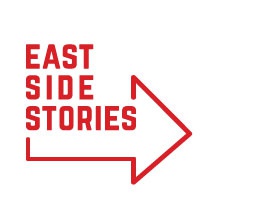
In sickness and in health: The EU "marriage" in crisis
Published on
It’s everywhere and it’s here to stay. These days the subject of the ongoing refugee crisis is dominating headlines, computer screens and conversations. We take a look at how the wave of migration is a menace to European values… but not in the way you might think. Opinion piece.
While some use the refugee crisis as an opportunity to portray their humanitarian nature by welcoming refugees to economically successful countries such as Germany and Sweden, the other side is busy panicking. These “panickers” label their counterparts “do-gooders”, “lefty-liberals” or “hopeless romantics” (while in turn being called “neonazis”, or just plain racists). They argue that refugees are coming to benefit from the opulent welfare systems of western European states, or to spread sharia law.
In addition, a distinction is drawn between those real refugees – those who flee from war-torn Syria, generally have a more positive standing – and those refugees hailing from the "safe countries" in the Balkans, who are instead known as economic migrants. Apparently, the latter can be clearly spotted miles away by their money-hungry characteristics, en route to robbing the German taxpayer’s last cent to sponsor their stay in paradise.
What are we really so afraid of?
Let’s open Pandora’s box and try and answer this question. Is it Islam? Too many foreigners in our home countries? The downfall of our national identity? Less money? An increasing loss of state sovereignty? The list goes on. Beneath it all, another fear is lingering: are we Europeans not as tightly knit as we thought we were?
It’s no secret that the ongoing refugee crisis has presented itself as a highly awkward situation for the EU member states. With a lack of formal strategy, policy or anything representing true teamwork, one could suggest that we are going back on our European promises, only caring about national solutions instead of cross-border policy.
So far, most of the refugees are en route to Sweden and Germany and, understandably, these states are overwhelmed by the immense influx of people arriving. The same is true of the so-called “transit zones” between these states and EU borders. Many in Germany are appalled that it is them who again have to prop up the rest of Europe, assuming that the majority of refugees choose to risk their lives to reach Germany due to its status as an economic powerhouse.
However, according to Andreas Lipsch, Chairman of the German human rights group Pro Asyl, it is often forgotten that many Syrian refugees want to come to Germany because there has existed a very large Syrian community in the country since before the Civil War even began. It’s the same reason why immigrants from DRC will try to come to France; when you have family in a foreign country, trying to reach them is preferential to surviving on your own.
European values in crisis?
What it is important to remember is that it does not help to play the blame game. While Germany finds itself either debating what constitutes a “real” refugee who is thus deserving of asylum, or panicking about how this could negatively impact the country, we are not only wasting money, time and energy, but we are contributing to the loss of yet more lives.
Furthermore, it is counterproductive to insist on policies that are clearly not working – namely the Dublin Accord. The guidelines of this accord, if followed, would effectively force incoming refugees to remain in their arrival countries such as Greece or Italy. Needless to say, carrying the entire burden of feeding, providing medical assistance and housing to all incoming refugees is difficult enough considering the dire economic situations in these arrival countries
The refugee crisis is turning out to be a menace to European values, exactly because it is drawing them into question in this way. The European project was supposed to eradicate the potential for war, enhance communication and cooperation in political, economic and social issues, and channel our diversity into a united stance. What we have witnessed in the past months suggests that we are either not ready to truly perform as a union, or that solidarity dwindles in cross-border crises.
These values should not be treated as luxurious jewellery to be worn only on special occasions. If Europe wants to continue and grow into a stronger union, then it cannot let these hardships give way to solitary nationalist views. Just like a marriage, European values should be upheld for better, for worse, for richer, for poorer, in sickness and in health.
---




